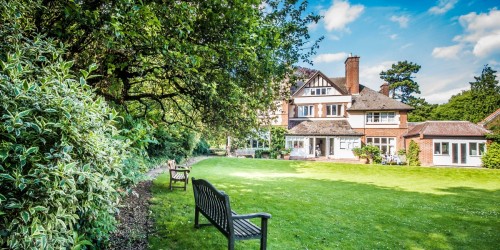
Lucy Cavendish is delighted to welcome three new members to the Fellowship
On 26 May Dr Julian Gilbey, Dr Joe Sutliff Sanders and Dr Renan Baker were appointed to the Fellowship
Alex, Lucy’s Fellow and Director of Studies for Part I English, shares his thoughts on life, teaching and passion for his subject
I’m a literary critic, which for me has meant focusing a lot on poetry and how we write about it, but has also included studying history, philosophy, psychology and music at times. I studied English at Warwick and at Cambridge, specialising as a graduate student in the eighteenth century and writing a PhD about William Wordsworth and what he calls ‘unremembered pleasure’.
Since then I’ve broadened my lens a bit, looking at other romantic poets such as Percy Shelley and Letitia Landon, and writing essays about ethics, rhythm, disappointment, dreams, and why readers sometimes find that poetry speaks to or ‘touches’ them, for better or worse. I’ve also published a book drawn from the work on Wordsworth. I’m currently working on a project on romantic writers’ anxieties about self-love, and the implications for their politics, their aesthetic ideals, and their ideas about love, gender and sexuality.
One of the best parts of working in Cambridge for me has been the collegiate connections you can make between subjects. I’ve benefited hugely from conversations with people in philosophy, history, law, economics, maths, Jewish studies, and so on. As well as continuing those cross-disciplinary conversations at Lucy myself, I’m keen as a teacher to develop and expand teaching and learning opportunities in College that bring people together from across the disciplines to share a variety of methods and viewpoints.
I’ve taught in Cambridge (as well as at the University of East Anglia) since I was a graduate student, and teaching has always been central to my own learning as well as challenging and rewarding in its own right. In English, a supervision is a chance to discuss the week’s reading and writing, but it’s also a chance to think through cultural and historical questions and events that continue to influence our lives. Teaching can always surprise you and throw up ways of looking at something that you’d never considered. It also lets you see students’ writing and ideas develop and improve every week, which is equally rewarding.
Teaching and working at Lucy is especially exciting for me because of the work we’re doing in expanding access to the subject and to Cambridge education in general, and because of the rich tradition of literary studies at Lucy, alongside an abiding connection to contemporary writing and publishing. At Lucy I direct studies for Part I English, as well as teaching eighteenth century and romantic literature, and practical criticism (among other things), and running outreach and admissions for English. I’m looking forward to doing these things—and getting together as a subject and college community—in person as soon as it becomes possible.
See Dr Freer’s Fellow’s profile here.